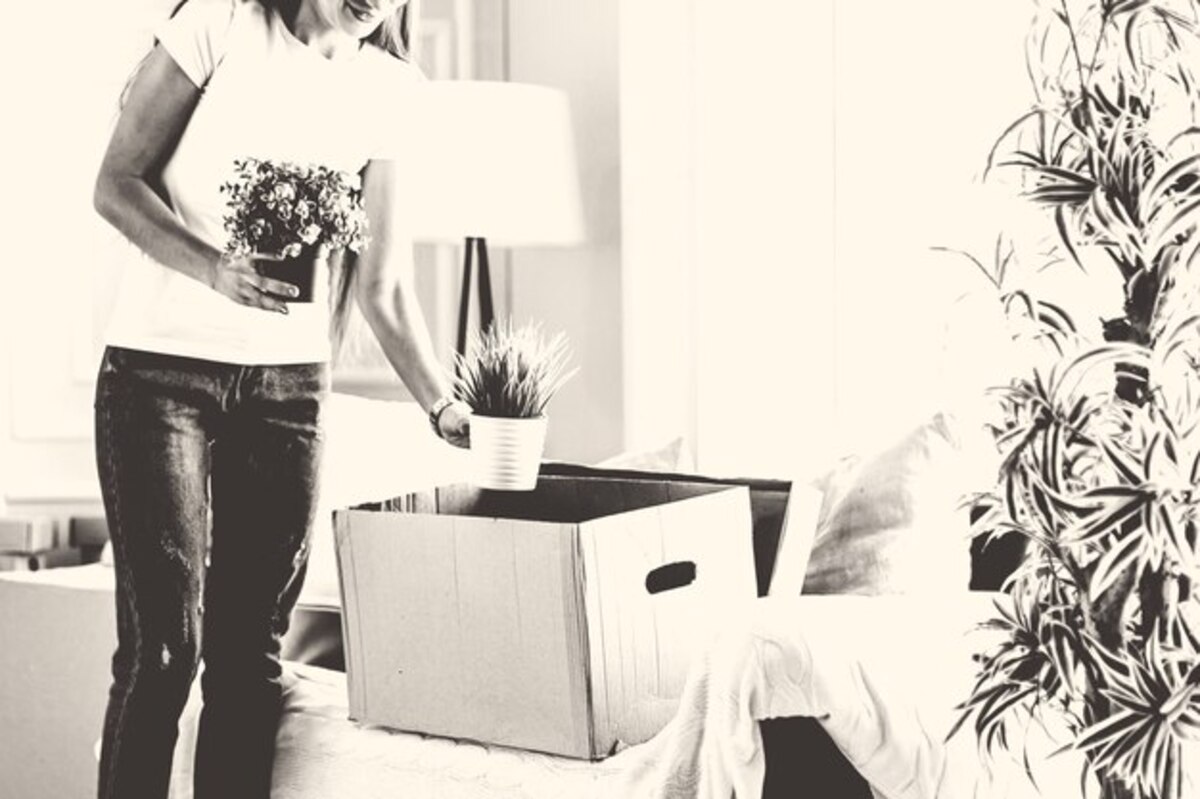Transform the moving process into an enriching experience.

Transforming the moving process into an enriching experience may seem like a challenge, but with the right attitude and some practical tips, you can turn this moment into an opportunity for growth and learning. Moving involves more than just packing and transporting items; it is a stage of renewal that can bring new adventures. In this article, we will show you how to make your move a memorable journey that adds value to your life.
1. Positive mindset: key to enjoying the move
A positive mindset is the first step to transforming the move into an enriching experience. Instead of viewing this process as a simple transfer of belongings, you can approach it as an opportunity to rediscover what you truly value and need in your life. Each box you pack becomes a reminder of your past experiences, while each new space offers you the possibility of reinventing yourself. By adopting an optimistic attitude, you not only ease the stress associated with the move, but also open yourself up to the exciting possibilities that a new home brings.
Additionally, cultivating a positive mindset allows you to face the challenges of the process with greater resilience. It is natural to feel overwhelmed by the number of tasks involved in moving; however, if you choose to focus on the excitement of the change—such as exploring new neighborhoods or meeting your future neighbors—you will be able to enjoy the journey more. Consider organizing family or friend activities during the process: from packing together to decorating the new home. These shared experiences will not only strengthen your relationships but will also turn each step into a valuable memory, making your move a meaningful and unforgettable adventure.
2. Effective planning: the first step towards a successful move
Effective planning is the heart of a successful move. Before you start packing your belongings, take a moment to design a plan that includes every step of the process. This includes establishing a realistic timeline that outlines when you should start packing, when you should contact moving services, and when the big day will be. Having a structured outline will not only help you stay calm but also prevent the stress of leaving everything to the last minute. By breaking down each task into manageable stages, you can move forward with confidence and enjoy the journey to your new home.
Additionally, planning allows you to identify what you really need to take with you and what you can let go of. As you review your belongings, consider donating or selling those items that are no longer useful or meaningful to you. This exercise will not only make your move easier by reducing the number of things you need to transport, but it can also be emotionally liberating, allowing you to start with a fresh perspective in your new space. Remember, each object has its story; by letting go of some, you are making room for new experiences and memories to be created in your next chapter.
3. Get rid of the clutter: purify your space before packing.
Getting rid of clutter is a crucial step in transforming your move into a rewarding experience. Before you start packing, take time to evaluate each item you own. Ask yourself if you really need it or if it holds significant sentimental value. This process will not only help you reduce the number of things you will be moving, but it will also allow you to reflect on what you have accumulated and how it relates to your current life. By freeing up physical space, you will also be creating an opportunity to clear your mind and prepare yourself emotionally for the change.
Once you have decided what to keep and what to donate or discard, organize your belongings efficiently before packing them. You can sort items by categories: clothing, kitchen utensils, books, etc., which will make the packing process and subsequent organization in your new home easier. Additionally, consider involving the whole family in this activity; it’s a great way to share memories and strengthen bonds while together creating a lighter and more harmonious environment. Remember that by getting rid of the clutter, you are not only making physical space in your new house but also opening the door to new opportunities and experiences that will enrich your life.
4. Create a timeline: organize each stage of the process.
Creating a schedule is one of the keys to transforming the moving process into a rewarding experience. By establishing a clear and detailed plan, you can organize each stage of the process, allowing you to avoid the stress and confusion that often accompany these transitions. Start by dividing your move into phases, such as preparing your current home, searching for a new place, planning the transportation, and finally, organizing your new space. This way, each task can be approached with calm and dedication, enabling you to enjoy the process more.
Additionally, a well-structured timeline will help you establish realistic deadlines for each activity. Consider allocating time to get rid of unnecessary items before packing; this will not only reduce the physical burden you will have to move but also provide you with a valuable opportunity to reflect on what you truly need in your life. Likewise, you can schedule specific days to pack entire rooms or particular areas of your home. Staying on track with this timeline will give you a clear view of the progress made and facilitate any necessary adjustments as the moving process progresses.
5. Involve your loved ones: turn the burden into shared fun.
Involving your loved ones in the moving process not only lightens the physical load but also transforms a daunting task into a moment of connection and camaraderie. Invite friends and family to participate in organizing, packing, and decorating your new home. By sharing this experience, you can create lasting memories while enjoying laughter, anecdotes, and perhaps even a good meal at the end of the day. Collaboration turns what could be a solitary effort into a rewarding social activity, where everyone can contribute their personal touch.
Additionally, consider organizing small events during the move to make it even more special. For example, you can plan a "packing with pizza" day, where everyone gathers to help wrap your belongings while enjoying good company and delicious food. Or, upon arriving at your new home, organize a "decorating" afternoon where each person contributes ideas or decorative elements that reflect their personal style. These activities will not only facilitate the logistical process of the move but also strengthen the emotional bonds among everyone involved, making this change truly memorable.
6. Personalize your new home: ideas to make you feel at home
Personalizing your new home is one of the most exciting parts of the moving process. Upon arriving at an empty space, you have the opportunity to imprint your personality and style in every corner. Start by choosing a color palette that resonates with you; whether opting for neutral tones that convey calmness or vibrant colors that bring energy. Additionally, consider integrating decorative elements that tell your story: family photographs, travel souvenirs, or even works of art that inspire you. Each object can serve as a reminder of significant moments in your life and help you feel more connected to your new surroundings.
Don't forget to get involved in creating cozy and functional environments. Think about how you use each space and adapt the decor to your daily needs. For example, if you enjoy hosting friends, take the time to transform the living room into a warm and welcoming place with comfortable furniture and soft lighting. Plants are also perfect allies to bring life to any room; their presence not only beautifies the place but also improves air quality and contributes to a feeling of well-being. At the end of the day, remember that every decorative choice should reflect who you are and make you feel truly at home.
7. Establish new routines: how to quickly adapt to your new environment.
Establishing new routines in your new home is key to quickly adapting and feeling comfortable in your environment. When arriving in an unfamiliar place, it’s natural to experience a mix of emotions, from excitement to anxiety. However, creating daily habits from the start can help you establish a sense of normalcy. Start with simple activities like preparing breakfast at the same time every day or taking a walk around the neighborhood. These actions will not only help you get familiar with your new area, but they will also provide you with moments of calm amid the chaos of moving.
Additionally, get involved in community activities that allow you to meet your neighbors and make new friends. Participating in local events or joining interest groups can help you integrate and enrich your experience. By establishing these connections and routines, you will not only adapt more quickly, but also contribute to creating a welcoming environment that will make your new home feel like a true refuge. Remember that each day is an opportunity to discover something new and build valuable memories in this exciting chapter of your life.
8. The importance of memories: what to keep and what to let go
Moving is a perfect time to reflect on the memories we have accumulated over the years. Every object in our home has a story to tell, from a gift from a loved one to those souvenirs from unforgettable trips. However, not all of those memories are equally valuable. When taking stock of your belongings, ask yourself which objects truly evoke positive emotions and which have lost their significance over time. This process will not only help you reduce the number of things you take with you, but it will also allow you to recognize and honor those important moments in your life by deciding what to keep. On the other hand, letting go of certain objects can be liberating and create both physical and emotional space in your new home. Sometimes, holding on to things from the past can prevent us from moving forward and fully enjoying new experiences. Consider donating or giving away what no longer resonates with you; this will not only benefit others, but it will also allow you to start this new phase with less burden. Remember that the most cherished memories live in our memory and heart, and they do not always need to be materialized in objects to continue being a part of us. Thus, by carefully selecting what you decide to take with you, you can turn your move into a celebration of change and personal renewal.
9. Reflect on change: lessons learned during the move
Reflecting on the change that moving brings is essential to make the most of this experience. Every item we pack and every corner we leave behind tells a story, and in doing so, we give ourselves the opportunity to evaluate what we truly value in our lives. This process is not just about relocating physical belongings; it also involves an internal examination of our priorities, desires, and aspirations. By the end of the move, you are likely to realize what you have learned about yourself, whether in terms of resilience, organizational ability, or even the importance of material detachment.
Additionally, the lessons learned during a move can serve as a foundation for future transitions. You may have discovered new skills while organizing your space or strengthened bonds with friends and family by asking for their help. These experiences not only add value to the move itself but also better prepare you to face any changes that may come in the future. Reflecting on these experiences allows you to take with you not only your material belongings to your new home but also an emotional baggage enriched by personal growth and the relationships cultivated during this transformative process.



